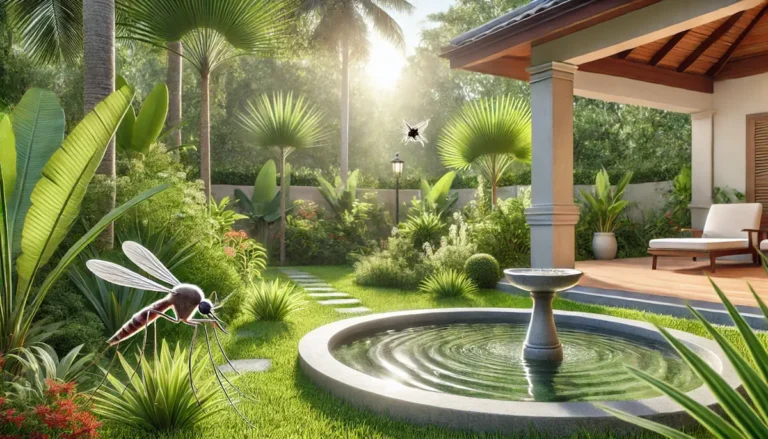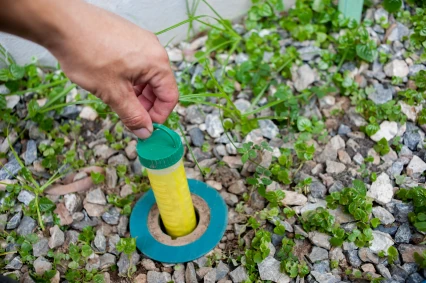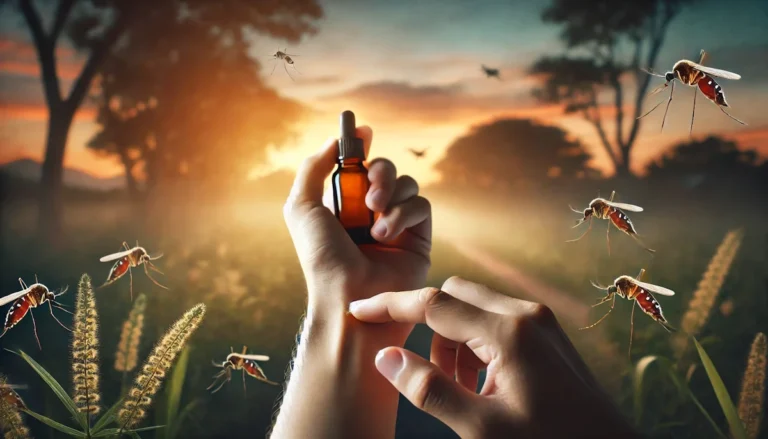Table of Contents
ToggleMosquitoes, the bane of summer evenings, are not only annoying but also carriers of diseases. Yet, nature has its own checks and balances. There are natural predators of mosquitoes that play a crucial role in controlling their population. In this article, we’ll explore six natural enemies of mosquitoes and how you can attract them to your outdoor space.
Understanding the ecological web is key to natural pest control. By promoting the presence of mosquito predators, you can enjoy your garden with fewer buzzing pests and without the need for harmful chemicals.
The Importance of Mosquito Predators
Mosquito natural predators are essential in maintaining the ecological balance. They help keep mosquito populations at bay, minimizing the spread of mosquito-borne diseases such as malaria, dengue fever, and Zika virus. By encouraging these natural enemies in your environment, you can reduce the mosquito population naturally.
1. Birds
Swallows and Purple Martins
Swallows and purple martins are known for their aerial acrobatics and insect-eating prowess. These birds feed on a variety of insects, including mosquitoes, which they catch mid-flight.
To attract swallows and purple martins, consider installing birdhouses or a purple martin colony setup. Ensure these are placed in open areas, away from trees, to provide these birds with clear flight paths.
Bats
Bats are one of the most effective mosquito predators. A single bat can consume hundreds of mosquitoes in one night. To encourage bats to take up residence near your home, set up bat houses on trees or buildings. Place them high above the ground and away from bright lights to create an ideal habitat.
2. Fish
Mosquitofish (Gambusia affinis)
The mosquitofish is a small, freshwater fish that feeds on mosquito larvae. They can be introduced to ponds or stagnant bodies of water where mosquitoes breed. However, be cautious as mosquitofish can be invasive and may disrupt local ecosystems if not managed properly.
Other Fish Species
Many other fish species also feed on mosquito larvae, including goldfish, koi, and certain types of minnows. Stocking your garden pond with these fish can help manage mosquito populations while adding beauty to your landscape.
3. Aquatic Insects
Dragonflies and Damselflies
Dragonflies and damselflies, often referred to as mosquito hawks, are efficient hunters of mosquitoes at both the larval and adult stages. To attract these beneficial insects, create a pond or water feature with plenty of vegetation for them to lay their eggs.
Water Beetles
Water beetles are another group of aquatic insects that feed on mosquito larvae. Adding features such as logs or rocks in your pond can provide habitats for water beetles and other predatory insects.
4. Amphibians
Frogs and Toads
Frogs and toads are natural mosquito predators, consuming both larvae and adult mosquitoes. To attract these amphibians, maintain a garden pond and provide hiding spots like rocks or dense plantings.
Salamanders and Newts
Salamanders and newts also feed on mosquito larvae. Preserve natural habitats such as wetlands and woodlands to support their populations.
5. Spiders
Spiders are often overlooked as mosquito predators, but many species feed on adult mosquitoes. Orb-weaver spiders, for example, catch mosquitoes in their intricate webs.
Encourage spiders by reducing pesticide use and maintaining areas with dense vegetation where they can spin their webs.
6. Plants That Attract Mosquito Predators
While plants themselves don’t typically eat mosquitoes, they can play a significant role in attracting mosquito predators to your garden.
Flowers for Nectar-Feeding Predators
Planting flowers such as marigolds, lavender, and fennel can attract nectar-feeding insects like dragonflies and other beneficial bugs that also prey on mosquitoes.
Plants for Habitat
Tall grasses, shrubs, and trees provide shelter for birds and bats. These plants can create a welcoming environment for mosquito-eating wildlife.
Water Plants
Water lilies, cattails, and duckweed in your pond can provide habitats for aquatic insects that prey on mosquito larvae.
Considerations for Attracting Mosquito Predators
While encouraging mosquito predators is beneficial, there are a few considerations to keep in mind:
- Balance: Always consider the balance of your local ecosystem before introducing new species.
- Native Species: Opt for native predators and plants whenever possible to support local biodiversity.
- Avoid Pesticides: Pesticides can harm the very creatures you’re trying to attract. Use natural pest control methods instead.
- Standing Water: Eliminate unnecessary standing water to prevent creating mosquito breeding grounds.
Conclusion
Nature has its own pest control methods, and by understanding and supporting the predators of mosquitoes, we can reduce our reliance on chemicals and foster a healthier environment. Encouraging birds, fish, insects, and other wildlife that feed on mosquitoes can help you reclaim your outdoor spaces from these pesky intruders.
By incorporating plants that attract mosquito predators, providing habitats, and maintaining a natural balance in your garden, you can enjoy summer evenings with fewer mosquitoes buzzing around. Remember, every creature has its role, and by supporting the natural enemies of mosquitoes, you’re contributing to a more sustainable and pleasant outdoor environment.
Take Action with Professional Mosquito Control While promoting natural mosquito predators is effective, sometimes you need an extra layer of protection to ensure your outdoor spaces are mosquito-free. On Demand Pest Control is here to provide professional mosquito control services tailored to your specific needs.
Our expert technicians use safe and environmentally friendly methods to reduce mosquito populations, allowing you to enjoy your garden without the nuisance and health risks associated with these pests. Serving areas across South Florida, including Pembroke Pines, Fort Lauderdale, and Pompano Beach, we are dedicated to keeping your home and yard comfortable and mosquito-free.
Don’t let mosquitoes ruin your outdoor enjoyment.
Contact On Demand Pest Control today for a free consultation and discover how our professional services can help you maintain a mosquito-free environment all season long.




